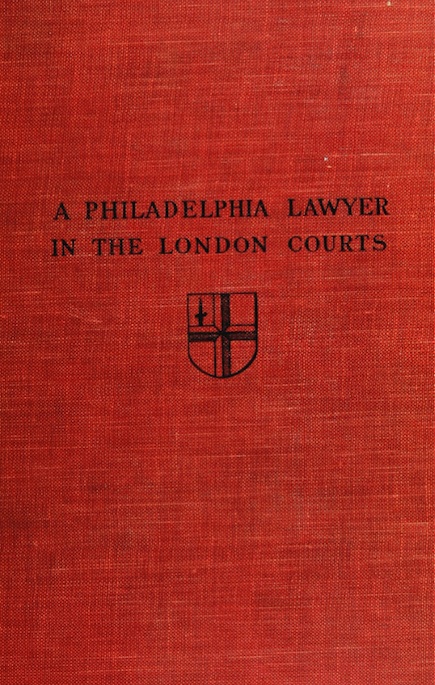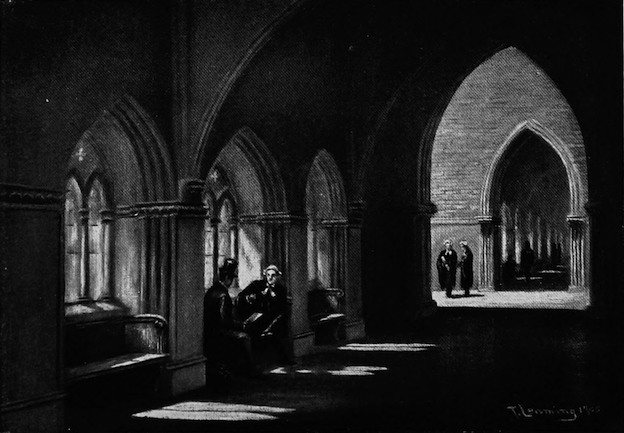
A PHILADELPHIA LAWYER
IN THE LONDON COURTS
BY
THOMAS LEAMING
Illustrated by the Author
SECOND EDITION, REVISED

NEW YORK
HENRY HOLT AND COMPANY
1912
Copyright, 1911,
BY
HENRY HOLT AND COMPANY
Published May, 1911
PREFACE
The nucleus of this volume was an addressdelivered before the Pennsylvania State Bar Associationwhich, finding its way into variousnewspapers in the United States and England,received a degree of favorable notice that seemedto warrant further pursuit of a subject heretoforeapparently overlooked. Successive holidayvisits to England were utilized for this purpose.
As our institutions are largely derived fromEngland, it is natural that the discussion of publicquestions and the glimpses of important trialsafforded by the daily papers—usually murdertrials or divorce cases—should more or less familiarizeAmericans with the English point of viewin legal matters. American lawyers, indeed,must keep themselves in close touch with the actualdecisions which are collected in the reportsto be found in every library and which are frequentlycited in our courts.
Nothing in print is available, however, fromwhich much can be learned concerning the barristers,the judges, or the solicitors, themselves,[vi]whose labors establish these precedents. Theyseem to have escaped the anthropologist, so curiousabout most vertebrates, and they must bestudied in their habitat—the Inns of Court, themusty chambers and the courts themselves.
The more these almost unknown creatures areinvestigated, the more will the pioneer appreciatethe difficulty of penetrating the highly specializedprofessional life of England, of masteringthe many peculiar customs and the elaborateetiquette by which it is governed and of reproducingthe atmosphere of it all. He will findthat he can do little but record his observations.
It was not unknown to him that some lawyersin England are called barristers, some solicitors,and he had a vague impression that the former,only, are advocates, whose functions and activitiesdiffer from those of the solicitor; but he washardly conscious that the two callings are as unlikeas those of a physician and an apothecary.It requires personal observation to see that thebarristers, belonging to a limited and somewhataristocratic corps, less than 800 of whom monopolizethe litigation of the entire Kingdom, havelittle in common with the solicitors, sca
